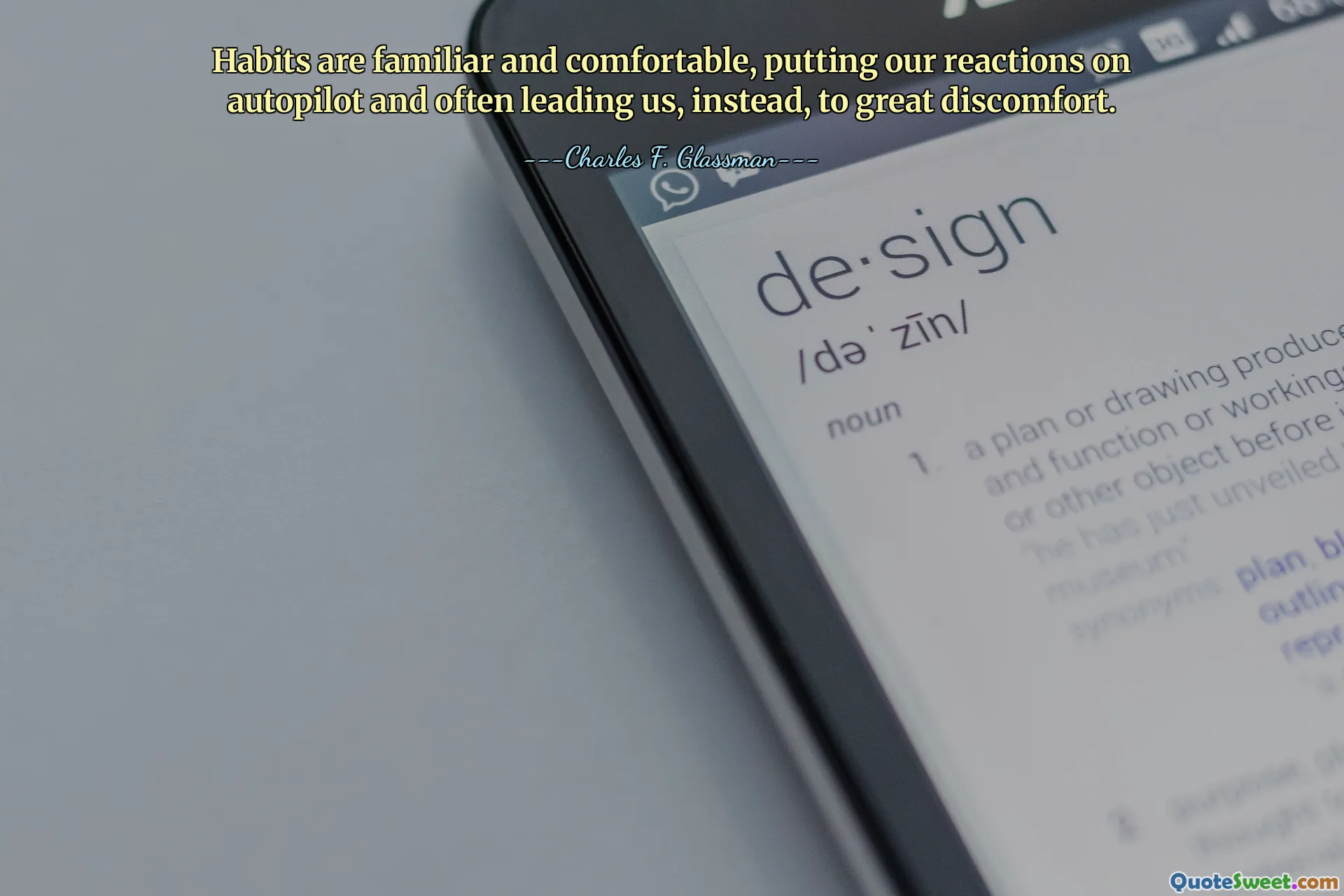
Habits are familiar and comfortable, putting our reactions on autopilot and often leading us, instead, to great discomfort.
Habits, by their very nature, create a framework within which we operate daily without much active deliberation. They bring a sense of familiarity and comfort, allowing us to move through repetitive tasks and situations with minimal cognitive load. However, this same autopilot mode can ironically lead to discomfort. When our reactions are pre-programmed by habit, we may find ourselves in situations where those ingrained responses are no longer effective or appropriate, causing internal conflict or external difficulties. It’s fascinating to consider that the very mechanisms we rely on to reduce stress and streamline our actions can also trap us in patterns that contribute to unease. This dichotomy speaks to the importance of mindfulness and adaptability in personal growth. Becoming aware of our habits and questioning their origin and effectiveness empowers us to shift from autopilot to conscious decision-making. It's a reminder that comfort zones formed by habits are double-edged: while they can shield and simplify, they can also inhibit our potential and adaptation to change. Therefore, this quote encourages us to reflect on how habits shape our lives and challenges us to balance comfort with growth-oriented discomfort. Embracing that discomfort can be a signal to reevaluate our habits, making space for transformation and deeper self-understanding.






